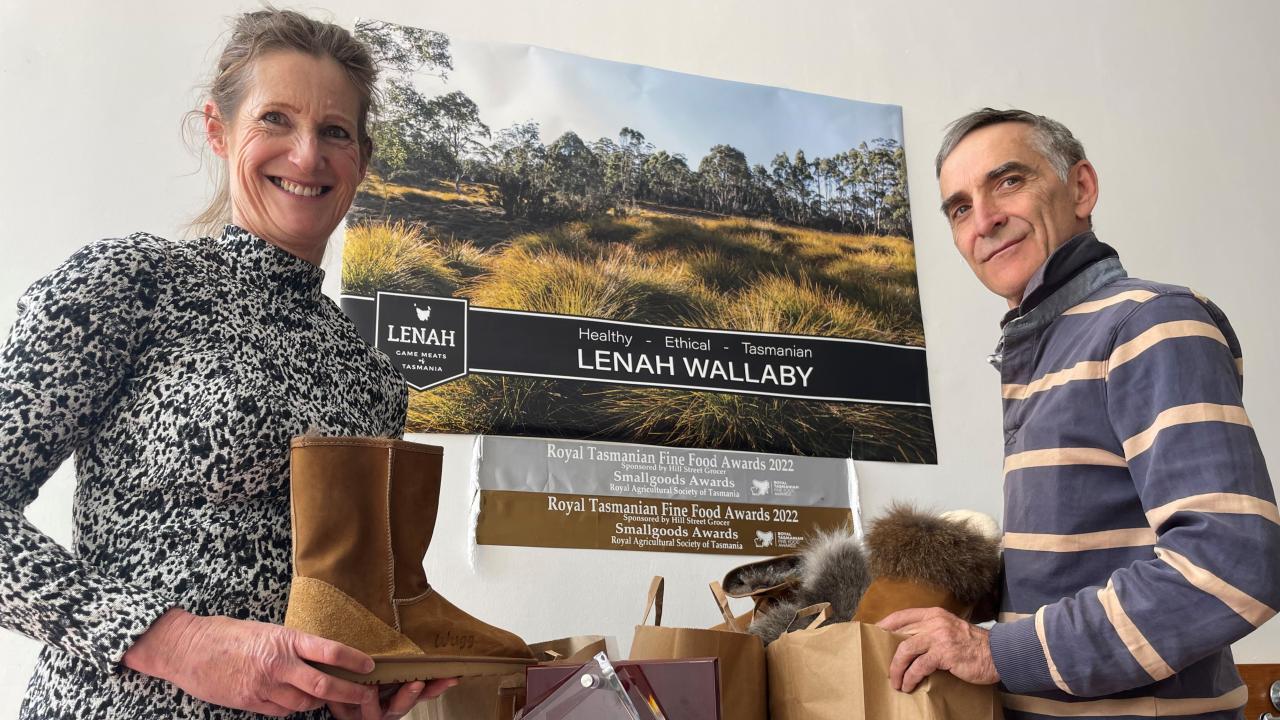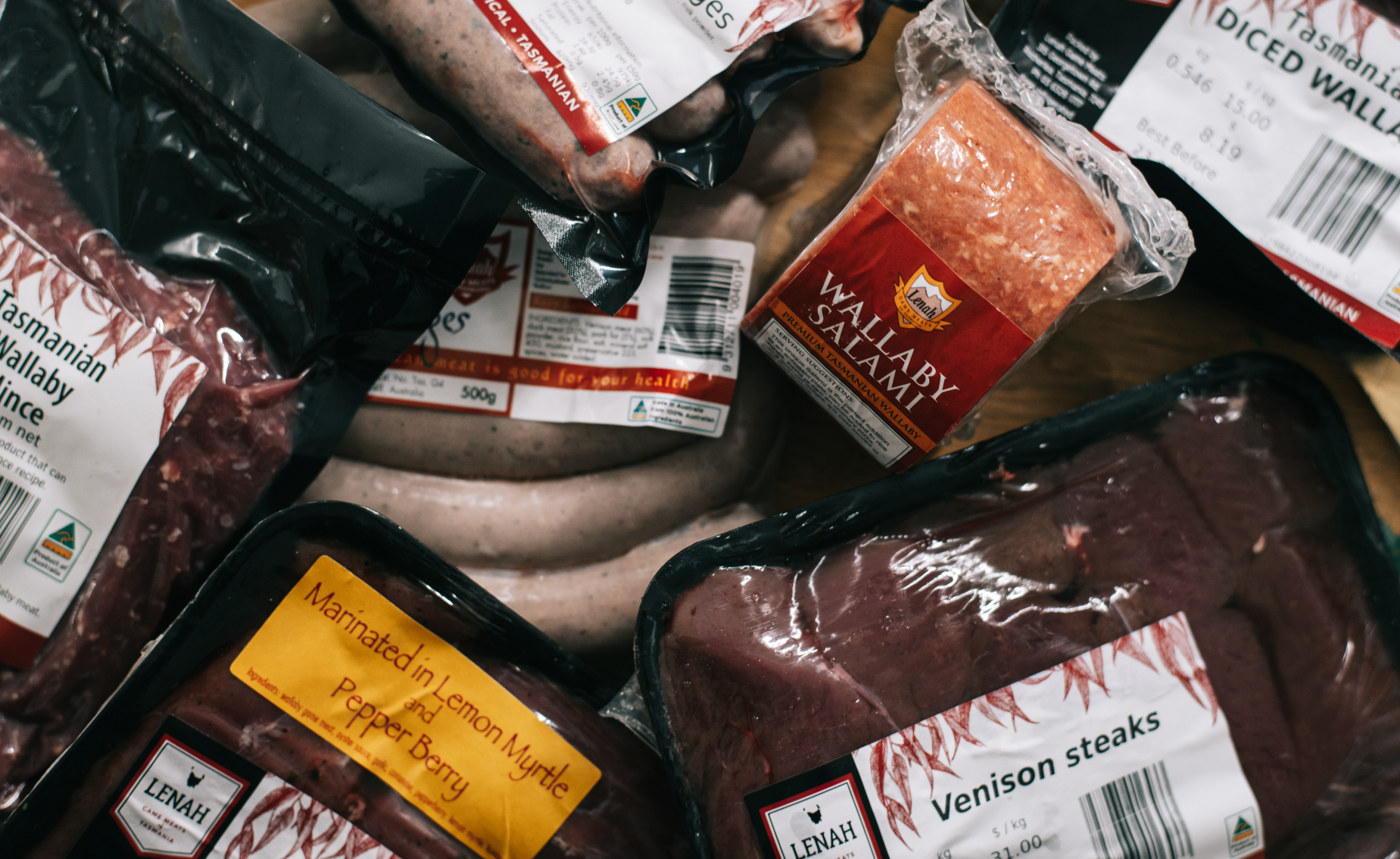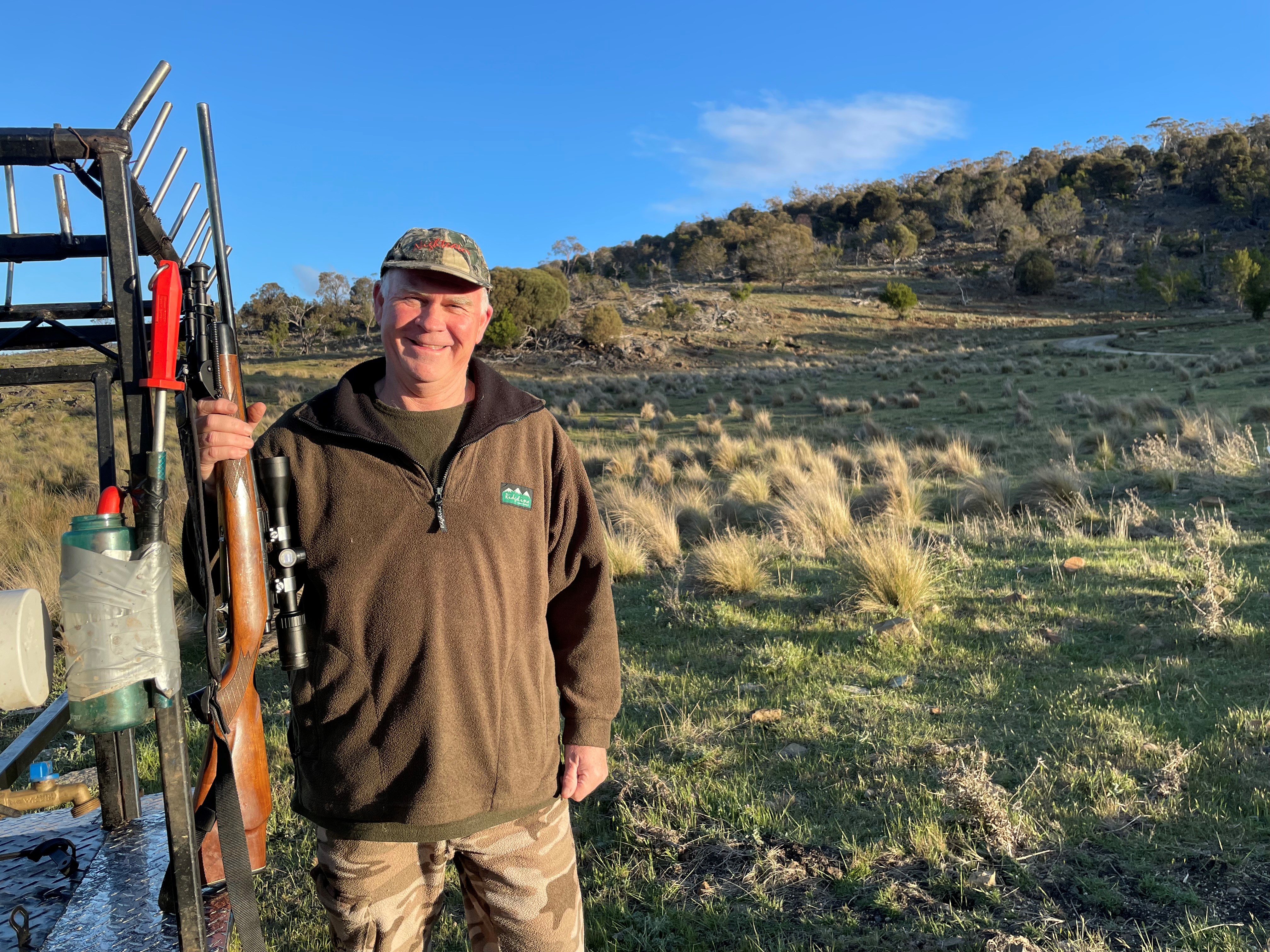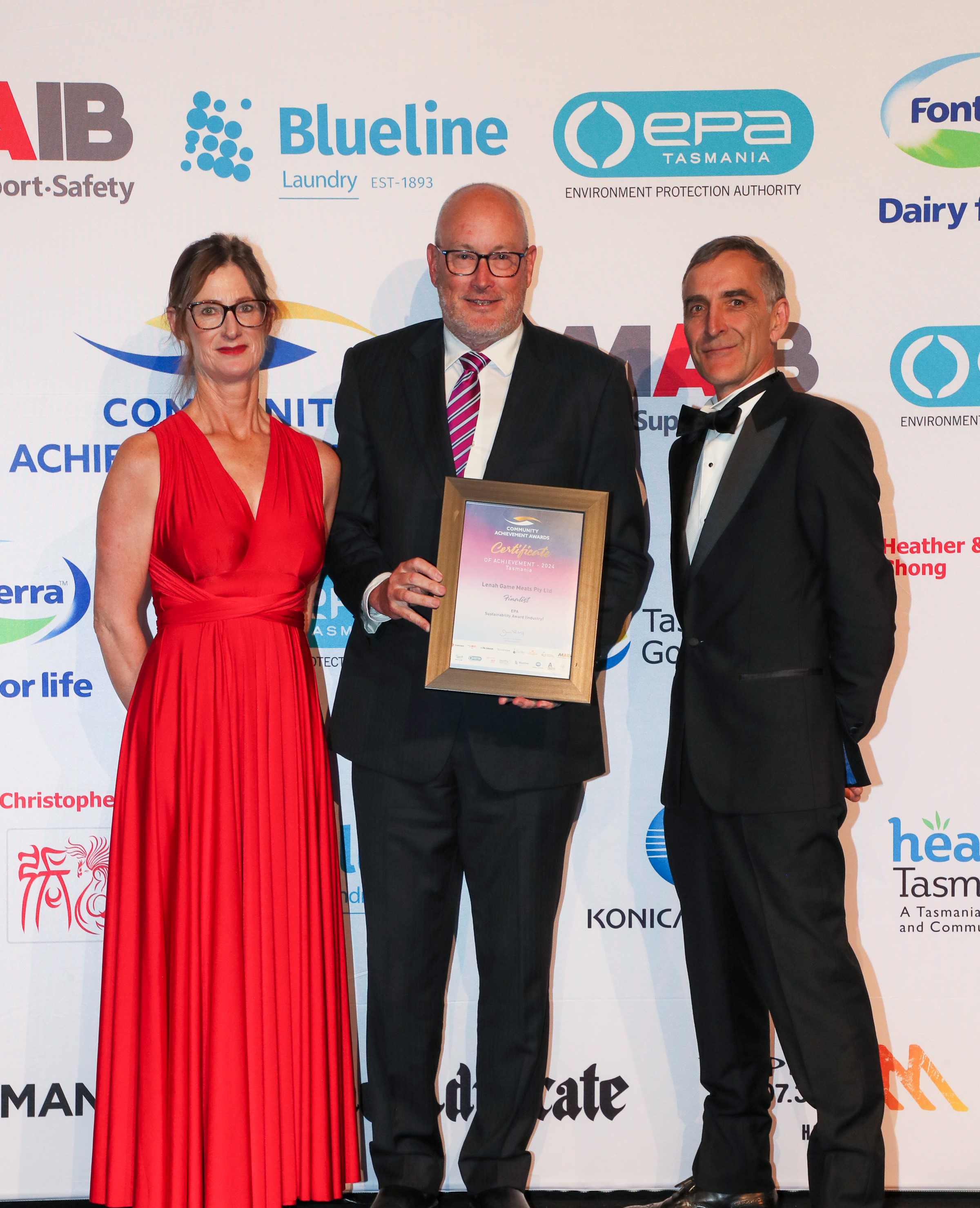Sustainability award win a game changer

Scott Flude, from Bridgenorth, is a farmer’s best friend – targeting the burgeoning wallaby and deer population on four or five properties at any given time as the first step in the Lenah Game Meats process that continues to impress at every level for its ethical and sustainable operation.
The game meat business, managed by John and Katrina Kelly, recently earned the EPA Sustainability Award (industry) at the Community Achievement Awards held in Hobart.
Lenah Game Meats managing director, John Kelly, said the award is a “big deal” for the business and the industry, and the harvesters who work for him play a vital role in turning a wasted and abundant resource into high value food, fibre and the increasingly popular wallaby fur footwear, Wuggs.

“Wallaby harvesting has a lot of sustainability benefits. There are inputs required by other plant and animal proteins that wallaby harvesting does not need. No tree clearance, cultivation, fertilisers or chemicals to name a few. These are important in and of themselves but the most significant benefit of wallaby is its low level of embedded carbon,” Mr Kelly said.
“Wallaby don’t burp and fart methane like cattle and sheep, thanks to a completely different digestive system.
“The wallaby meat you buy from your local supermarket has approximately one twelfth of the embedded carbon of beef.”
Lenah has a vision of generating high value products and markets to enable Tasmanian farmers to view wallaby as a valuable resource, rather than a pest.
“We hope one day some farmers will decrease their domestic animal herds and dedicate a part of their property to wallaby and harvest them as a farm enterprise. This has been our vision for 30 years,” Mr Kelly said.
As it stands, farmers might be having a hard time with the thought of encouraging wallaby breeding on their land, while the mammals compete with cattle and sheep for feed.

According to Mr Flude, who retired a few years ago after 43 years in the police force, there is no shortage of wildlife eating the crops and grass.
In fact he said “there has been a population explosion”.
“I would have brought in 3000 wallabies over the past 12 months, plus about 500 possums and 300 deer – on a good night I’d shoot about 50 wallabies,” he said.
“Working closely with the farmer to ensure the process is legal, regulated and the culling is carried out in an ethical manner is essential and the beauty of the operation is that at the end of the night everything we cull is picked up and taken away and has a use – there’s no rotting carcases and bones left behind so the property is kept clean.
“I admire how the Kellys go about their business, and to think that wallaby harvesting by farmers could be part of the carbon solution makes it even more important.”
Mr Flude has been shooting and hunting most of his life, at one point he even conducted guided hunting tours in South Africa, New Zealand and Alaska.
In every case he said there were benefits for the local farmers and the wider community.
“I grew up in an era where wallaby was shot for dog food,” he said.
“Wallaby and venison are some of the best red meats you can get and it’s underutilised in Tasmania.”
According to TasFarmers, the significant growth of irrigated agriculture across much of Tasmania’s arable land has seen a dramatic growth in high quality pastures and high value crops which in turn have produced an abundant feed source for wildlife, whose population has increased accordingly.
“Visible evidence of the dramatic increase in wildlife numbers is the increase in roadkill as witnessed by the significant increase in car insurance claims for collisions with wildlife reported by both AAMI and RACT insurance,” TasFarmers CEO Nathan Calman said.
“In 2020 TasFarmers conducted a survey of our members to gauge the extent of wildlife damage to farming operations. Combining the value of lost production with the costs of control, the cost incurred to the 250 members that responded totalled more than $9 million per year.
The most numerous problem species reported were; Bennetts and rufous wallaby, brushtail possum, feral cats, sulphur crested cockatoo, crows and deer. Other, more area-specific, problem species reported included Forester kangaroo, rabbits, hares, ducks, swans and wombats.
The Kellys have become experts over the past 30 years in making the most of the meat and skins from the species it processes.
Having experienced enormous interest at the recent Deloraine Craft Fair, they continue to slowly but surely promote the full utilisation of culled wallabies.
“The only difference now is there is the climate change imperative and harvesting more wallaby can be part of the solution,” Mrs Kelly said.


Add new comment